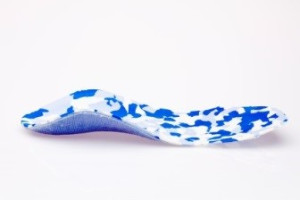Items filtered by date: March 2021
Plantar Warts Can Be Treated!
What Can Cause Painful Gout Attacks?
 Excess uric acid in the blood may cause a condition that is known as gout. This is considered to be a form of arthritis, and causes severe pain and discomfort as a result of inflammation in the joints. Gout generally affects the joints in the big toe, and can occur due to genetics, or from eating foods that have high levels of purines. These types of foods can include shellfish, red meat, alcohol, and drinks that are made with large amounts of sugar. Gout can be common in patients who are obese, have diabetes, or kidney disorders. After a proper diagnosis is made, which can include having an X-ray taken or testing the blood for uric acid crystals, proper treatment can begin. If you are afflicted with gout, it is strongly suggested that you are under the care of a podiatrist who can offer you the right treatment options.
Excess uric acid in the blood may cause a condition that is known as gout. This is considered to be a form of arthritis, and causes severe pain and discomfort as a result of inflammation in the joints. Gout generally affects the joints in the big toe, and can occur due to genetics, or from eating foods that have high levels of purines. These types of foods can include shellfish, red meat, alcohol, and drinks that are made with large amounts of sugar. Gout can be common in patients who are obese, have diabetes, or kidney disorders. After a proper diagnosis is made, which can include having an X-ray taken or testing the blood for uric acid crystals, proper treatment can begin. If you are afflicted with gout, it is strongly suggested that you are under the care of a podiatrist who can offer you the right treatment options.
Gout is a painful condition that can be treated. If you are seeking treatment, contact Gary J. Kaiserman, DPM from Achilles Footcare Center. Our doctor will treat your foot and ankle needs.
What Is Gout?
Gout is a form of arthritis that is characterized by sudden, severe attacks of pain, redness, and tenderness in the joints. The condition usually affects the joint at the base of the big toe. A gout attack can occur at any random time, such as the middle of the night while you are asleep.
Symptoms
- Intense Joint Pain - Usually around the large joint of your big toe, and it most severe within the first four to twelve hours
- Lingering Discomfort - Joint discomfort may last from a few days to a few weeks
- Inflammation and Redness -Affected joints may become swollen, tender, warm and red
- Limited Range of Motion - May experience a decrease in joint mobility
Risk Factors
- Genetics - If family members have gout, you’re more likely to have it
- Medications - Diuretic medications can raise uric acid levels
- Gender/Age - Gout is more common in men until the age of 60. It is believed that estrogen protects women until that point
- Diet - Eating red meat and shellfish increases your risk
- Alcohol - Having more than two alcoholic drinks per day increases your risk
- Obesity - Obese people are at a higher risk for gout
Prior to visiting your podiatrist to receive treatment for gout, there are a few things you should do beforehand. If you have gout you should write down your symptoms--including when they started and how often you experience them, important medical information you may have, and any questions you may have. Writing down these three things will help your podiatrist in assessing your specific situation so that he or she may provide the best route of treatment for you.
If you have any questions, please feel free to contact our offices located in Forest Lane and West Kiest Boulevard Dallas, TX . We offer the newest diagnostic and treatment technologies for all your foot care needs.
Can Anything Stop This Pain in the Ball of My Foot?
Morton’s neuroma occurs when tissues in the foot become thickened due to an injury, irritation, or excessive pressure on the nerves of the toes of the foot. Improperly-fitted shoes, high heels, high-impact activities, or even having a foot that is malformed can contribute to these nerves becoming damaged. Individuals with Morton’s neuroma can feel pain concentrated in the ball of the foot or between the 3rd and 4th toes, and may even experience a burning, tingling, or numbness. Podiatrists often treat Morton’s neuroma and reduce a patient’s pain with MLS Laser Therapy, which sends out multiple healing energy waves deep beneath the skin to repair nerves and tissues.
Morton’s neuroma is a very uncomfortable condition to live with. If you think you have Morton’s neuroma, contact Gary J. Kaiserman, DPM of Achilles Footcare Center. Our doctor will attend to all of your foot care needs and answer any of your related questions.
Morton’s Neuroma
Morton's neuroma is a painful foot condition that commonly affects the areas between the second and third or third and fourth toe, although other areas of the foot are also susceptible. Morton’s neuroma is caused by an inflamed nerve in the foot that is being squeezed and aggravated by surrounding bones.
What Increases the Chances of Having Morton’s Neuroma?
- Ill-fitting high heels or shoes that add pressure to the toe or foot
- Jogging, running or any sport that involves constant impact to the foot
- Flat feet, bunions, and any other foot deformities
Morton’s neuroma is a very treatable condition. Orthotics and shoe inserts can often be used to alleviate the pain on the forefront of the feet. In more severe cases, corticosteroids can also be prescribed. In order to figure out the best treatment for your neuroma, it’s recommended to seek the care of a podiatrist who can diagnose your condition and provide different treatment options.
If you have any questions, please feel free to contact our offices located in Forest Lane and West Kiest Boulevard Dallas, TX . We offer the newest diagnostic and treatment technologies for all your foot care needs.
Off-the-Shelf vs. Custom-Made Foot Orthotics
 When you are experiencing foot pain, any relief is welcome. Pre-made shoe inserts (foot orthotics) purchased at the drug store can alleviate discomfort for some people. There are also custom-made foot orthotics which go a step further. A podiatrist first determines the cause of your foot pain, and creates either a 3D model or takes an impression of your actual feet. Then, a customized foot orthotic is created to fit you and treat the specific nature of your pain. These made-to-order orthotics can benefit patients with conditions such as plantar fasciitis, bunions, high arches and various forms of arthritis. If you are experiencing pain in one or both of your feet, don’t suffer in silence. It is suggested that you call a podiatrist to see if foot orthotics can improve your quality of life.
When you are experiencing foot pain, any relief is welcome. Pre-made shoe inserts (foot orthotics) purchased at the drug store can alleviate discomfort for some people. There are also custom-made foot orthotics which go a step further. A podiatrist first determines the cause of your foot pain, and creates either a 3D model or takes an impression of your actual feet. Then, a customized foot orthotic is created to fit you and treat the specific nature of your pain. These made-to-order orthotics can benefit patients with conditions such as plantar fasciitis, bunions, high arches and various forms of arthritis. If you are experiencing pain in one or both of your feet, don’t suffer in silence. It is suggested that you call a podiatrist to see if foot orthotics can improve your quality of life.
If you are having discomfort in your feet and would like to try orthotics, contact Gary J. Kaiserman, DPM from Achilles Footcare Center. Our doctor can provide the care you need to keep you pain-free and on your feet.
What Are Orthotics?
Orthotics are inserts you can place into your shoes to help with a variety of foot problems such as flat feet or foot pain. Orthotics provide relief and comfort for minor foot and heel pain but can’t correct serious biomechanical problems in your feet.
Over-the-Counter Inserts
Orthotics come in a wide variety of over-the-counter inserts that are used to treat foot pain, heel pain, and minor problems. For example, arch supports can be inserted into your shoes to help correct overarched or flat feet, while gel insoles are often used because they provide comfort and relief from foot and heel pain by alleviating pressure.
Prescription Orthotics
If over-the-counter inserts don’t work for you or if you have a more severe foot concern, it is possible to have your podiatrist prescribe custom orthotics. These high-quality inserts are designed to treat problems such as abnormal motion, plantar fasciitis, and severe forms of heel pain. They can even be used to help patients suffering from diabetes by treating foot ulcers and painful calluses and are usually molded to your feet individually, which allows them to provide full support and comfort.
If you are experiencing minor to severe foot or heel pain, it’s recommended to speak with your podiatrist about the possibilities of using orthotics. A podiatrist can determine which type of orthotic is right for you and allow you to take the first steps towards being pain-free.
If you have any questions please contact our offices located in Forest Lane and West Kiest Boulevard Dallas, TX . We offer the newest diagnostic and treatment technologies for all your foot and ankle needs.
Ways a Podiatrist Can Help You
A podiatrist is a doctor that specializes in diagnosing and treating medical conditions of the feet and ankles. A podiatrist may treat foot and ankle pain, deformities such as bunions and hammertoes, structural problems like flat feet or biomechanical issues, and sports injuries, among many other ailments. A podiatrist can also help you maintain your foot health if you have other medical conditions that affect the feet, such as diabetes, peripheral neuropathy, or poor circulation. Many podiatrists are also qualified to perform foot and ankle surgery, and different podiatrists may specialize in specific areas within the field. If you are experiencing any foot or ankle problems, it is recommended that you seek the care of a podiatrist.
If you are experiencing pain in the feet or ankles, don’t join the stubborn majority refusing treatment. Feel free to contact Gary J. Kaiserman, DPM from Achilles Footcare Center. Our doctor can provide the care you need to keep you pain-free and on your feet.
What Is a Podiatrist?
Someone would seek the care of a podiatrist if they have suffered a foot injury or have common foot ailments such as heal spurs, bunions, arch problems, deformities, ingrown toenails, corns, foot and ankle problems, etc.
Podiatric Treatment
A podiatrist will treat the problematic areas of the feet, ankle or lower leg by prescribing the following:
- Physical therapy
- Drugs
- Orthotic inserts or soles
- Surgery on lower extremity fractures
A common podiatric procedure a podiatrist will use is a scanner or force plate which will allow the podiatrist to know the designs of orthotics. Patients are then told to follow a series of tasks to complete the treatment. The computer will scan the foot a see which areas show weight distribution and pressure points. The podiatrist will read the analysis and then determine which treatment plans are available.
If you have any questions please feel free to contact our offices located in Forest Lane and West Kiest Boulevard Dallas, TX . We offer the newest diagnostic and treatment technologies for all your foot and ankle needs.
The Right Sized Walking Shoe
When shopping for walking shoes, a good fit is the most important quality to look for in the shoe you’re interested in. A properly fitted walking shoe can prevent a host of foot problems, from blisters or bruises to plantar fasciitis. A properly fitted walking shoe should fit your entire foot snuggly but is not be too tight in any area. There should be enough room in the toe area for you to splay out your toes slightly, and there should also be about a finger’s width of space between your longest toe and the end of the shoe. Look for shoes that fit not only the length and width of your foot, but also the height, or volume or thickness, of your foot. Volume can be slightly adjusted by the way you lace your walking shoes. To help you find the walking shoes that fit you best, it is suggested that you get a proper shoe fitting in a shoe store. For more information about the importance of wearing properly fitted shoes, please consult with a podiatrist.
Finding a properly-fitting shoe is important in reducing injuries and preventing foot problems. For more information about treatment, contact Gary J. Kaiserman, DPM from Achilles Footcare Center. Our doctor will treat your foot and ankle needs.
Proper Shoe Fitting
A common concern when it comes to foot health, having properly fitted shoes can help prevent injuries to the foot. Out feet affect our posture and gait, which in turn affects the biomechanics and overall bodily structure. With 33 joints, 26 bones, and over 100 ligaments, the potential for serious injury is much greater than one realizes. Although the feet cease growth in adulthood, they still change shape as they mature. Here are some factors to consider when it comes to investing in proper fitting shoes:
- Be sure the shoes fit correctly right away
- Ensure the ball of your foot fits comfortably in the widest portion of the shoes
- Even though they may look fashionable, improper fitting shoes can either create adverse conditions or exacerbate existing ones you may already have
- Walk along a carpeted surface to ensure the shoes comfortably fit during normal activity
Keeping in mind how shoes fit the biomechanics of your body, properly-fitting shoes are vitally important. Fortunately, it is not difficult to acquire footwear that fits correctly. Be sure to wear shoes that support the overall structure of your body. Do your feet a favor and invest in several pairs of well-fitted shoes today.
If you have any questions please feel free to contact our offices located in Forest Lane and West Kiest Boulevard Dallas, TX . We offer the newest diagnostic and treatment technologies for all your foot and ankle needs.




